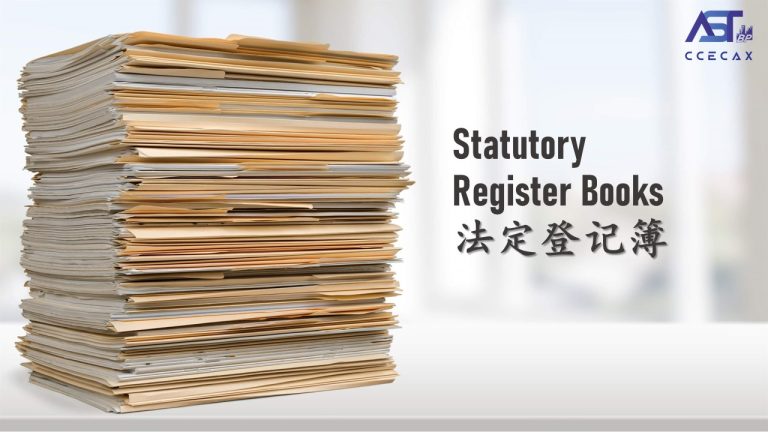Meaning of CS
In Malaysia, a CS is a person appointed by a company’s board of directors to ensure that the company complies with all the relevant laws and regulations. The CS is responsible for maintaining the company’s statutory records, preparing and filing legal documents, and ensuring that the company’s meetings and resolutions are properly recorded and documented.
In addition to these legal responsibilities, the CS may also provide advice to the board of directors on matters such as corporate governance, compliance, and company secretarial practice. They may also act as a point of contact between the company and its shareholders, regulators, and other stakeholders. Overall, the CS plays an important role in ensuring that the company operates in accordance with the law and maintains good corporate governance.
CS Responsibilities
- Corporate Governance. The CS plays a vital role in ensuring that the company complies with all legal and regulatory requirements related to corporate governance, including maintaining the company’s registers, drafting and filing necessary documents, and ensuring that the company’s meetings are properly conducted.
- Statutory Compliances. CS is responsible for ensuring that the company complies with all statutory requirements, including maintaining the company’s registers, submitting necessary forms and returns, and ensuring that the company’s accounts and other records are properly maintained.
- Board Support. CS provides support to the board of directors, including scheduling and preparing for board meetings, preparing minutes of meetings, and providing advice on corporate governance matters.
- Liaison with regulatory authorities. CS is responsible for maintaining good relationships with the regulatory authorities, such as Suruhanjaya Syarikat Malaysia (SSM), Bursa Malaysia, LHDN and others as required by law.
Qualification of CS
The memberships of the below list of professional bodies are qualified to act as named company secretaries upon application to the SSM for a Practising Certificate under Section 241 of the Companies Act 2016.
(i) Malaysian Institute of Chartered Secretaries and Administrators (MAICSA)
(ii) Malaysian Institute of Accountants (MIA)
(iii) Malaysian Bar (BC)
(iv) Malaysian Association of Company Secretaries(MACS)
(v) Malaysian Institute of Certified Public Accountants (MICPA)
(vi) Sabah Law Association (SLA)
(vii) Advocates Association of Sarawak (AAS)
SSM Directory of Licensed CS
1. How to check a certified CS registered with SSM?
1.1. Visit the SSM website List of Registered Secretaries at https://www.ssm.com.my/Pages/Licensed_Secretary_Auditors/List-Registered-Secretaries.aspx.
1.2. Please click << List of Registered Secretaries >>
1.3. You can search for a certified CS by entering their name or registration number in the search bar “Control + F”. Example name search: Lee Ray Men or SSM Practicing Certificate No. 201908002387.
1.4. The search result will display the status of the CS, including their name, SSM Practicing Certificate, and State.
Factors to Consider When Hiring A CS In Malaysia
- Communication skills. The CS should have excellent communication skills and be able to communicate effectively with the board of directors, shareholders, and other stakeholders. They should be able to explain complex legal and regulatory issues in a clear and concise manner.
- Qualifications and experience. The CS should have the necessary qualifications and experience to carry out the duties of the role effectively. They should have knowledge of the relevant legislation and regulations and should be able to provide sound advice to the board of directors.
Frequent Ask Question (FAQ)
1. Can a Director be a CS in Malaysia?
The Companies Act 2016 does not prohibit a director from also holding the position of CS. However, the Act requires that the CS must have the knowledge and ability to perform their duties, and the appointment must be approved by the board of directors.
2. Can we change the first CS appointed? And How?
It is possible to change the first CS appointed in Malaysia. The process for changing the CS involves several steps, as follows:
2.1. Resignation of the existing CS: The existing CS must first resign from their position. This can be done by submitting a resignation letter to the company’s board of directors.
2.2. Appointment of a new CS. Once the existing CS has resigned, the board of directors must appoint a new CS. The new CS must meet the qualifications required by law, and their appointment must be approved by the board of directors.
2.3. Notification to the authorities. Once a new CS has been appointed, the company must notify the relevant authorities of the change. This can be done by submitting the appropriate forms to SSM within 30 days of the change.
2.4. Handing over of records. The outgoing CS must hand over all the statutory records and documents to the new CS. This includes the statutory registers, minutes of meetings, and any other relevant documentation.
3. Disqualified of CS
- Conviction of an offense. If a CS is convicted of an offense related to fraud, dishonesty, or any other offense involving moral turpitude, it can result in disqualification.
- Failure to meet qualification requirements. CS in Malaysia are required to meet certain qualification requirements as per the Companies Act 2016. If a CS fails to meet these qualifications, it can result in disqualification.
- Bankruptcy. If a CS becomes bankrupt or is declared insolvent, it can result in disqualification.




